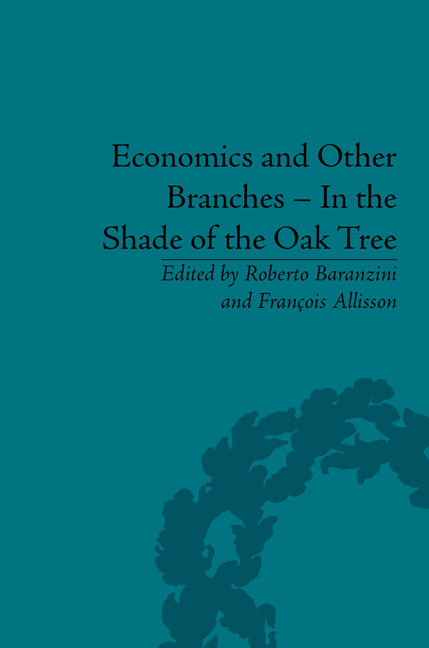Book contents
- Frontmatter
- CONTENTS
- List of Contributors
- List of Figures and Tables
- Introduction
- Pascal Bridel's Bibliography (up to 2013)
- Part I Léon Walras's Economic Thought
- Part II The Spreading of Thought
- Léon Walras's Reception
- The Lausanne School
- French Matters
- Cambridge UK
- Part III Monetary Theory
- Part IV Methodology
- Part V Economics and Humanities
- Economics and Social Sciences
- Some Insights from Visual Arts
- Part VI Economics and Civil Society
- 28 A Reflection on the Social Utility of Modern Macroeconomics
- 29 Failing to Control: Accountability in Historical Perspective
- 30 Does Transparency Engender the Confidence of the Governed? A Contribution to Political Thought
- 31 Face to the Environmental Challenge: Straddling the Fence between Social Responsibility and Penal Responsibility
- 32 Law as a System of Normative Production: Law and Semiotics
- Notes
- Index
30 - Does Transparency Engender the Confidence of the Governed? A Contribution to Political Thought
from Part VI - Economics and Civil Society
- Frontmatter
- CONTENTS
- List of Contributors
- List of Figures and Tables
- Introduction
- Pascal Bridel's Bibliography (up to 2013)
- Part I Léon Walras's Economic Thought
- Part II The Spreading of Thought
- Léon Walras's Reception
- The Lausanne School
- French Matters
- Cambridge UK
- Part III Monetary Theory
- Part IV Methodology
- Part V Economics and Humanities
- Economics and Social Sciences
- Some Insights from Visual Arts
- Part VI Economics and Civil Society
- 28 A Reflection on the Social Utility of Modern Macroeconomics
- 29 Failing to Control: Accountability in Historical Perspective
- 30 Does Transparency Engender the Confidence of the Governed? A Contribution to Political Thought
- 31 Face to the Environmental Challenge: Straddling the Fence between Social Responsibility and Penal Responsibility
- 32 Law as a System of Normative Production: Law and Semiotics
- Notes
- Index
Summary
Introduction
Over the past few decades, transparency in the handling of public affairs has become an increasing requirement. It is nowadays considered simultaneously a basic feature of good governance and a protection against misrule. This coincides with greater expectations from the public regarding the availability, accessibility and diffusion of information. Such great enthusiasm for transparency – which comes not only from public opinion and the media but also from entrepreneurs in civil and political life – is in fact multidimensional; many hopes have been associated with the requirement of transparency in public affairs. Among these hopes are an improvement of the moralization of politics, greater confidence and consent of the governed, and a capacity for the public to form its judgement in a more enlightened way. Among these factors that speak to the application of the principle of transparency, the confidence of the governed has played a very decisive role in political thought. In this essay, I will focus on the question of trust as a major argument for those who promote the principle of transparency. This essay will be developed along these two temporal axes: first, I would like to come back to the period of the emergence of representative government (late eighteenth to the early nineteenth century), where writers such as Jeremy Bentham and Benjamin Constant showed how transparency could engender the trust of the governed.
- Type
- Chapter
- Information
- Economics and Other Branches – In the Shade of the Oak TreeEssays in Honour of Pascal Bridel, pp. 425 - 434Publisher: Pickering & ChattoFirst published in: 2014

